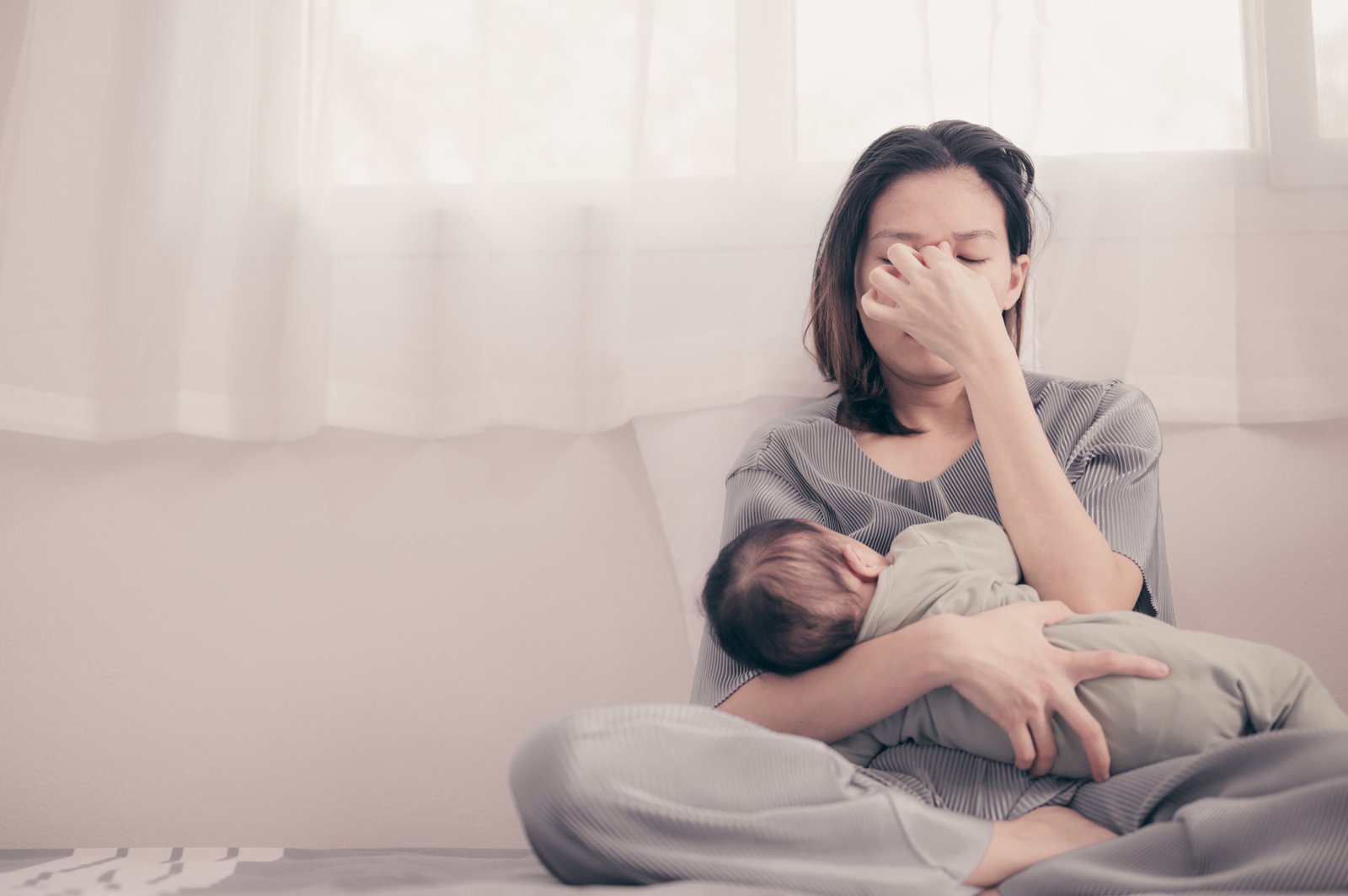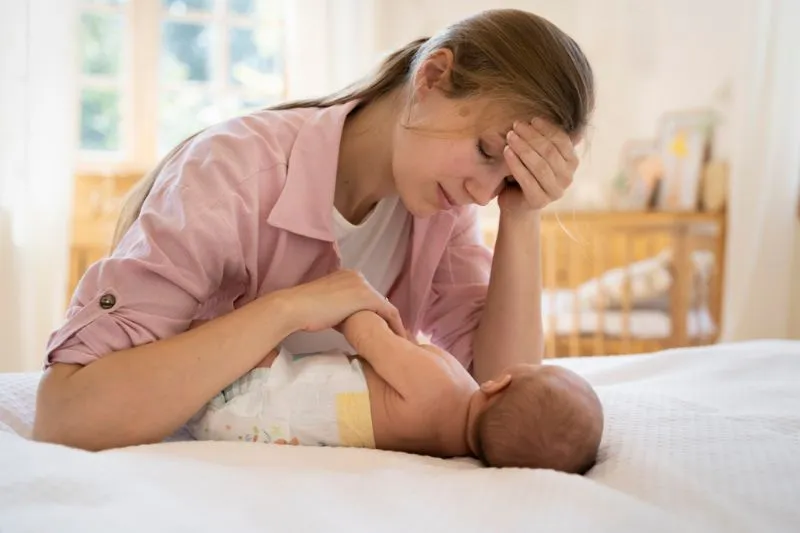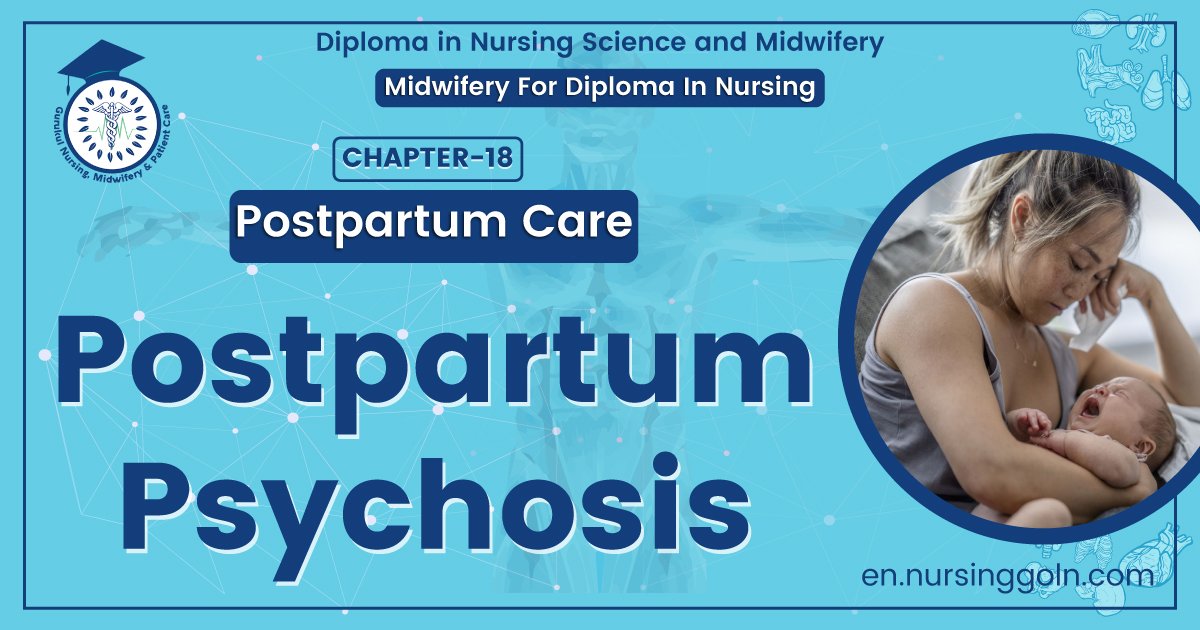Postpartum Psychosis – This course is designed to understand the care of pregnant women and newborn: antenatal, intra-natal and postnatal; breast feeding, family planning, newborn care and ethical issues, The aim of the course is to acquire knowledge and develop competencies regarding midwifery, complicated labour and newborn care including family planning.

Postpartum Psychosis
Postpartum psychosis
Postpartum psychosis is a rare psychiatric emergency in which symptoms of high mood and racing thoughts (mania), depression, severe confusion, loss of inhibition, paranoia, hallucinations and delusions set in, beginning suddenly in the first two weeks after childbirth.
Or
Postpartum Psychosis (PP) is a severe, but treatable, form of mental illness that occurs after having a baby.
Aetiology / risk factors of postpartum psychosis
Genetic factors.
- Age
- Obstetric risk-factors
- Changes in medications
- Hormonal factors
- Bipolar disorder
- Sleep Deprivation
- Postnatal complications
- Social support
- Sociodemographic factor
Symptoms that occur in postpartum psychosis
There are many symptoms that occur in postpartum psychosis. These may include:
1. Feeling ‘high’, ‘manic’ or ‘on top of the world’.
2. Low mood and tearfulness.
3. Anxiety or irritability.
4. Rapid changes in mood.
5. Severe confusion.
6. Being restless and agitated.
7. Racing thoughts.
8. Behaviour that is out of character.
9. Being more talkative, active and sociable than usual.
10. Being very withdrawn and not talking to people.
11. Finding it hard to sleep, or not wanting to sleep.
12. Losing inhibitions.
13. Feeling paranoid, suspicious and fearful.
14. Delusions.
15. Hallucinations.
Investigation needed for postpartum psychosis
1. Blood tests for sugar and sodium levels: Low sugar levels (hypoglycaemia) and low sodium levels (hyponatraemia) can cause odd behaviour.
2. Thyroid blood tests. Very low or very high thyroid levels can cause mood changes.
3. Blood tests for vitamin deficiencies: (for example, vitamin B12, folate or thiamine).
4. Computerised tomography (CT) or magnetic resonance imaging (MRI) scanning to rule out causes in the brain such as strokes.
Treatment for postpartum psychosis generally includes
- Hospitalization.
- Antipsychotic medications.
- Antidepressants.
- Electroconvulsive therapy (ECT).
- Counseling with a psychiatrist, psychologist, or other qualified mental health professional.
Nursing care
- Reassure the patient.
- Support positive parenting behavior.
- Early detection of the mal adaption.
- Advise her to take enough rest. Seep when the baby is sleeping.
- Spend time with family member.minagtang
- Counsel the family member.
Postpartum Baby Blues

The baby blues generally show up 3 to 4 days after birth and may last for the few weeks after delivery.
Causes
- Sudden and quick changes in hormones.
- The physical and emotional stress.
- The fatigue and lack of sleep.
Postpartum baby blues symptoms
Signs and symptoms of baby blues – which last only a few days to a week or two after your baby is born may include:
- Mood swings
- Anxiety
- Sadness
- Irritability
- Feeling overwhelmed
- Crying
- Reduced concentratio
- Appetite problems
- Trouble sleeping
Nursing care
- Advice women to exercise regularly.
- Advice women to eat healthy.
- A women need assurance that sudden crying episodes are normal.
- Join a support group for new mothers.
